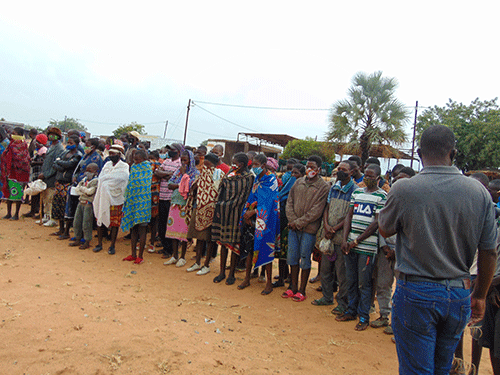There are over 8 000 asylum-seekers and refugees in Namibia, with the majority being Congolese, as some parts of the Democratic Republic of Congo still experience unrest.
These asylum-seekers are from Bangladesh, Burundi, Cameroon, Chad, Central African Republic, Ethiopia, Congo Brazzaville, DRC, Kenya, Nigeria, Rwanda, Senegal, Somalia, Uganda, Tanzania, Zambia and Zimbabwe.
The only place proclaimed to host refugees in Namibia is the Osire refugee settlement.
Venantius Nauyoma, deputy director for refugee administration in the ministry of immigration, explained that Congolese refugees refuse to return home in the absence of peace.
“Of course, there are those who are willing to return if peace returns to DR Congo, whereas some are hesitant to return, saying that even if peace returns, it might not last,” he explained.
Equally, he said, the refugees are fleeing from a well-founded fear of being persecuted as well as external aggression in their countries of origin.
In this regard, government grants them refugee status and also provides them with protection, support, education and primary healthcare.
Nauyoma then gave the assurance that the overall refugee situation in the country is good. Namibia continues to receive asylum-seekers through the reception centre in Katima Mulilo, Zambezi region.
Recognised refugees with the necessary qualifications and skills are allowed to work and/or own businesses in Namibia.
For those leaving the settlement without a permit, he warned them that the law requires refugees to reside in the Osire refugee settlement.
“However, the same law also makes provision for refugees, for example, those who are in employment services or running their own businesses or wanting to visit relatives, to obtain permission from the ministry to reside outside the settlement for a specific period. The validity of the permits varies from one reason to the other. For instance, those who are on permanent employment are given 12 months, and those who are going for a day or weekly visits are also given permits based on their requests,” he noted.
Therefore, living in a refugee settlement without a permit is an offence, and perpetrators can be senteced to imprisonment for a period not exceeding 90 days.
Nauyoma also touched on the situation of Namibian refugees who fled to Botswana during the Caprivi secession attempts.
He said former Namibian refugees from Botswana have returned home between September and October 2019. They were received by a delegation of ministers, senior government officials and their families.
“They were successfully integrated with their relatives. However, six of them are still in Botswana. This is the group of former refugees who could not be given security clearances to return due to their direct involvement in the Caprivi high treason case,” he continued. – anakale@nepc.com.na



